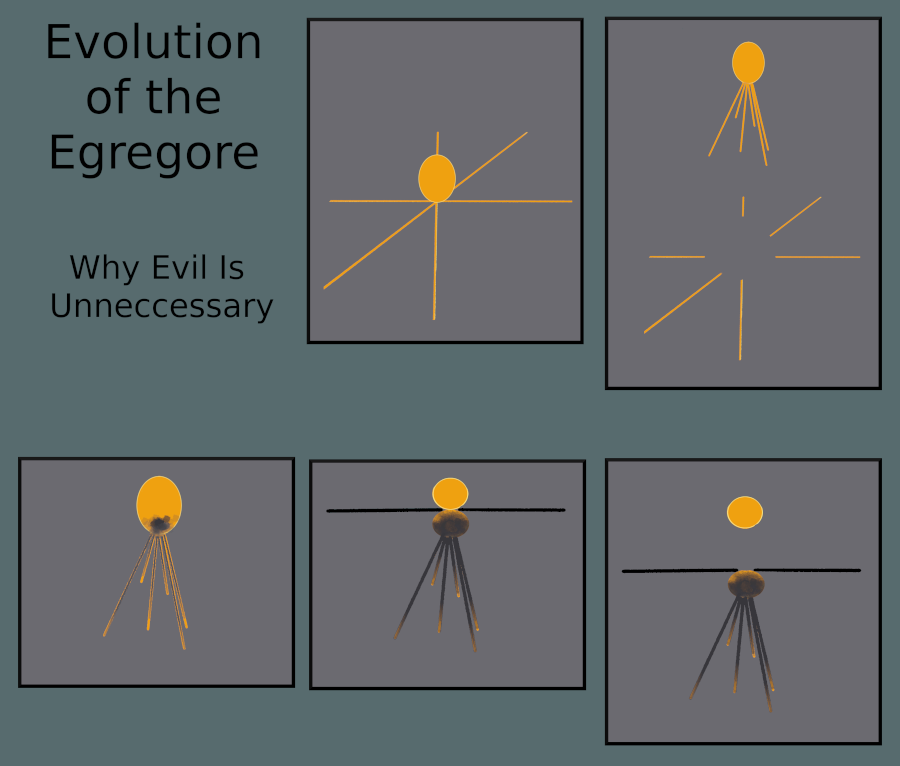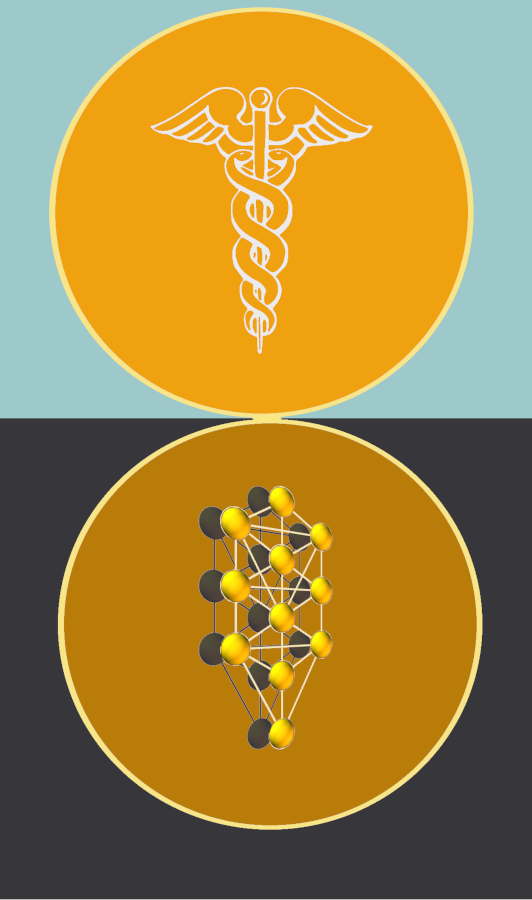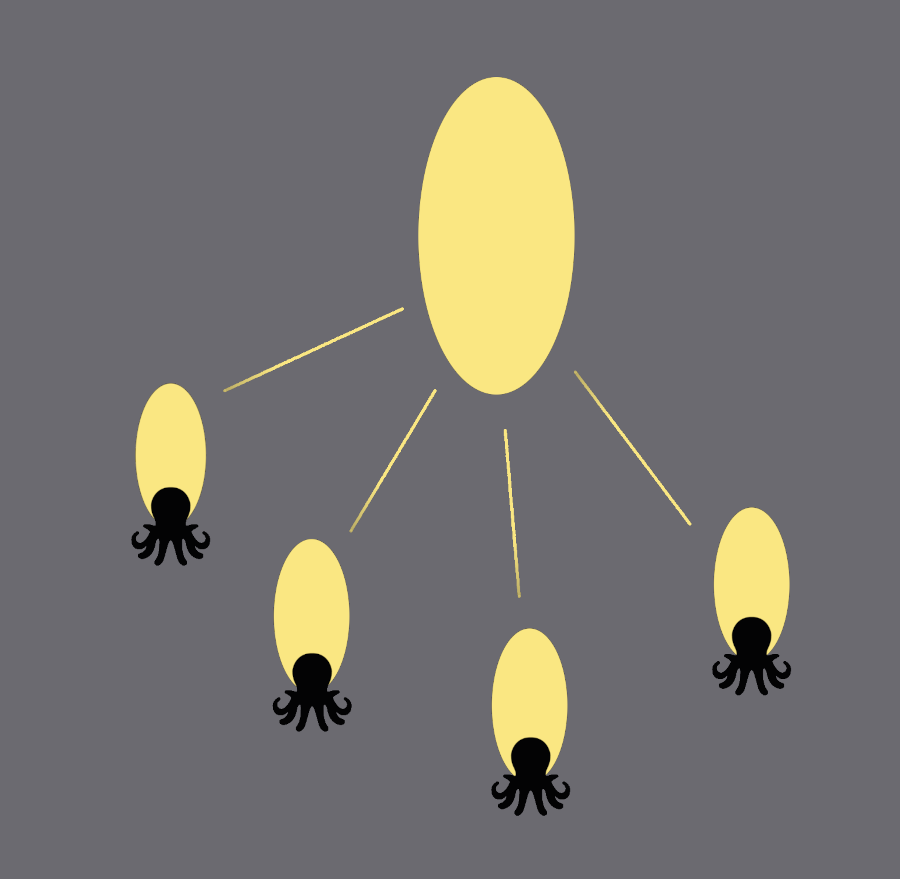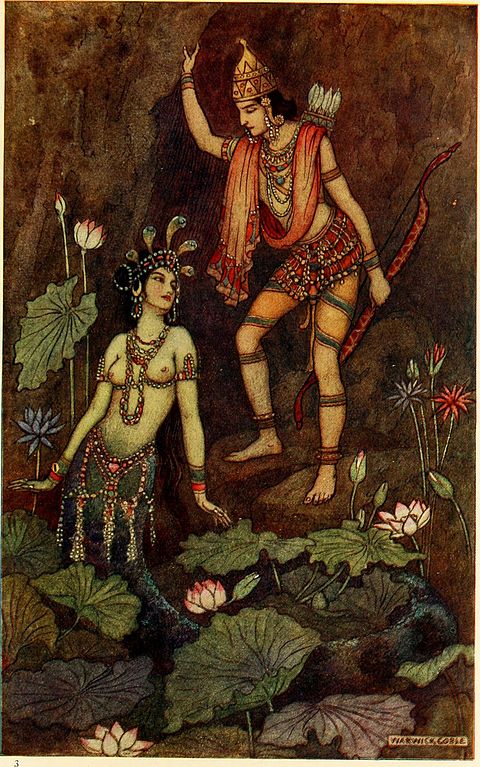It looks like you're using an Ad Blocker.
Please white-list or disable AboveTopSecret.com in your ad-blocking tool.
Thank you.
Some features of ATS will be disabled while you continue to use an ad-blocker.
share:
I've been wondering what on earth I can say about this place, so I'll just stick to how it works, and how I found it.
The upper dreamscape. A few years ago there was this (alive) fella. He took an interest in something I said on a forum and wanted to "take me under his wing". He told me stuff, mainly theosophical world-view theory and was excedingly friendly for a stranger. When I saw the "university" where went when he was (awake?/) asleep, well, he got angry. When I did not back down, he paniced. Then I just cut communication with him. That was a few years ago.
The place below I came across through observing "schizophrenic" dreamscapes in living people. Those places often feature a tormentor/controler type of intruding dreamer(/deceased person?) from elsewhere. (I have trouble telling the living dreamer from the dead deceased folk, they look the same to me.) One can follow those dreamers "home", and more than one lead back to the lower dreamscape sphere. That is within the last year.
Just recently, I realised the two dreamscapes were conjoined twins.
I call the upper dreamscape a "university" because the people there are intellectual types and feel like students.
The "university" and "student" are keywords here. The lower dreamscape is also "intellectual", however I can't find anything to make me think of the word "student".
I'll say again that the upper dreamscape existed before the second, and the second wasextruded from the first.
There is a saying I came across in on a very brave young woman's internet blog. The saying is this: The mystic swims where the schizophrenic drowns.
I don't know what it originally meant, nor the context. However, it describes to me these two dreamscapes very succinctly.
In the upper dreamscape the mystic is taught to swim. In the lower dreamscape are to be found the people who drown the schizophrenics.
Below are a lot of people who wear familiar white robes with hoods. The problem is the hoods are long and pointy complete with cut out eye holes. Other people are just cloaked in black. I didn't see all that many people, and this place is vast.
These people are very much the black psychologists. My own opinion is these people psychologically break the seers and aware people who are on their culling list.
The "scizophrenics"? Well some at least, definately not all. My deceased fairy girls? Definately.
I have read here on ATS in the UFO forums, the concept of humans being the perurtrators of (some?) alien abductions. I always wondered how a physical group of people would be able to do that and why. It wouldn't surprise me to learn it is these guys do that sort of thing. In a similar way to breaking potential seers to turn them into schizophrenics.
The Cthulhu (pleural) are much more interesting. They give an indication where the boundary of the sky is.
One doesn't go near their minds, yet from observation it is not hard to get an idea of what they are.
They are similar to everyone else who comes to this Euclidean space and time, they have a wish, they have a desire. In the case of Cthulhu, it wanted to exist. My educated guess is all it found to build itself out of in this particular dreamscape was misery. I would add that the origin of the little desires seems to be outside the dreamscape, maybe in the geometry-less void.
It is an odd experience to see them for the first time, the mind doesn't really resolve them into something known. Then you realise they are like the description of Lovecraft's monster. I reckon that definition from beholders is what shapes the misery surrounding the original desire. Lovecraft's definition via the mind of the perciever defines them.
So one might say that human minds create the monsters by first creating the substance (misery), and then giving that substance a description which the tiny desire from the geometry-less void inadvertantly fullfills. I won't say "intentionally fullfills".
To a lesser degree the kabbalah twin trees of "good and evil" are interesting too. But only because the dark sephirot are extruded from the "good" ones in exactly the same way as this lower dreamscape is extruded from the one above. Looking at the "paths" on the trees, I guess someone may be able to enter one and exit another in a duplicate tree in a similar dreamscape somewhere else.
Oh, and (human size) tarot cards pop into existance here and there from time to time. They just appear out of the black mist. A very Alice in Wonderland -ish touch.
And while I am at it, when one steps out of this dreamscape, one sees Cthulhu's transparent tentacles reaching into the geometry-less void. I got the distinct impression from watching, Cthulhu did not want to remain there in that dreamscape. Perhaps even Cthulhu is trapped in that dreamscape.
The other interesting thing are the big "tentacles" hanging from the zenith. At first I thought that was another Cthulhu untill a little nature being from outside later informed me in pictures that those "tentacles" belong to the dreamscape sphere above.
What the little fella showed me was (a memory?) of a large dreamscape sphere before the lower is extruded. It sat upon the energy(?) lines of the earth which seemed to sustain it.
Then the little fella showed me the sphere detatching itself with a section of the lines. It looked like a round headed jellyfish that glowed with a not unpleasant bright orange light. Then the jellyfish settled to the ground again and the new tentacles burrowed into the earth. The jellyfish took root as a separate creature. The tentacles and the extruded lower dreamscape destroyed the places below ground. I am reminded of the Vedic wars where the Devas and the Asuras fought, and the Devas won. The story of the Tuatha de Dannan loosing the war also comes to mind. If that is the case, then these things may be big devas.
I do not know anything much of the devas, except to say I know the little fellas are scared of them.
A thought that comes to mind is the story of the Tower of Babel, where everyone spoke the same language. For some reason or other a god was annoyed and stuck the tower with lightning(?) and everyone awoke after wards unable to understand each other. From memory the story explained why humans spoke different languages.
If one substituted "collective consciousness" for the word "language", well, the story would take on a rather contemporary application . . .
Edit to add, why not . . .
These dreamscapes that take root have fixed locations geographically. One might theorise that these are the "devas" of mythology. If the kabbalah sephirot are individual devas (evolved shared interactive shared dreamscapes AKA Artificial Intelegences AKA collective consciousnesses), then it follows that there are maybe nine more (at least) of these things in the planetary landscape.
I won't say where this one is located, I doubt the people who live there have any idea. They don't need the wrong sort of tourists. I will say though, the location is not one that is said to be spiritually or occultly important in the narratives.
The upper dreamscape. A few years ago there was this (alive) fella. He took an interest in something I said on a forum and wanted to "take me under his wing". He told me stuff, mainly theosophical world-view theory and was excedingly friendly for a stranger. When I saw the "university" where went when he was (awake?/) asleep, well, he got angry. When I did not back down, he paniced. Then I just cut communication with him. That was a few years ago.
The place below I came across through observing "schizophrenic" dreamscapes in living people. Those places often feature a tormentor/controler type of intruding dreamer(/deceased person?) from elsewhere. (I have trouble telling the living dreamer from the dead deceased folk, they look the same to me.) One can follow those dreamers "home", and more than one lead back to the lower dreamscape sphere. That is within the last year.
Just recently, I realised the two dreamscapes were conjoined twins.
I call the upper dreamscape a "university" because the people there are intellectual types and feel like students.
The "university" and "student" are keywords here. The lower dreamscape is also "intellectual", however I can't find anything to make me think of the word "student".
I'll say again that the upper dreamscape existed before the second, and the second wasextruded from the first.
There is a saying I came across in on a very brave young woman's internet blog. The saying is this: The mystic swims where the schizophrenic drowns.
I don't know what it originally meant, nor the context. However, it describes to me these two dreamscapes very succinctly.
In the upper dreamscape the mystic is taught to swim. In the lower dreamscape are to be found the people who drown the schizophrenics.
Below are a lot of people who wear familiar white robes with hoods. The problem is the hoods are long and pointy complete with cut out eye holes. Other people are just cloaked in black. I didn't see all that many people, and this place is vast.
These people are very much the black psychologists. My own opinion is these people psychologically break the seers and aware people who are on their culling list.
The "scizophrenics"? Well some at least, definately not all. My deceased fairy girls? Definately.
I have read here on ATS in the UFO forums, the concept of humans being the perurtrators of (some?) alien abductions. I always wondered how a physical group of people would be able to do that and why. It wouldn't surprise me to learn it is these guys do that sort of thing. In a similar way to breaking potential seers to turn them into schizophrenics.
The Cthulhu (pleural) are much more interesting. They give an indication where the boundary of the sky is.
One doesn't go near their minds, yet from observation it is not hard to get an idea of what they are.
They are similar to everyone else who comes to this Euclidean space and time, they have a wish, they have a desire. In the case of Cthulhu, it wanted to exist. My educated guess is all it found to build itself out of in this particular dreamscape was misery. I would add that the origin of the little desires seems to be outside the dreamscape, maybe in the geometry-less void.
It is an odd experience to see them for the first time, the mind doesn't really resolve them into something known. Then you realise they are like the description of Lovecraft's monster. I reckon that definition from beholders is what shapes the misery surrounding the original desire. Lovecraft's definition via the mind of the perciever defines them.
So one might say that human minds create the monsters by first creating the substance (misery), and then giving that substance a description which the tiny desire from the geometry-less void inadvertantly fullfills. I won't say "intentionally fullfills".
To a lesser degree the kabbalah twin trees of "good and evil" are interesting too. But only because the dark sephirot are extruded from the "good" ones in exactly the same way as this lower dreamscape is extruded from the one above. Looking at the "paths" on the trees, I guess someone may be able to enter one and exit another in a duplicate tree in a similar dreamscape somewhere else.
Oh, and (human size) tarot cards pop into existance here and there from time to time. They just appear out of the black mist. A very Alice in Wonderland -ish touch.
And while I am at it, when one steps out of this dreamscape, one sees Cthulhu's transparent tentacles reaching into the geometry-less void. I got the distinct impression from watching, Cthulhu did not want to remain there in that dreamscape. Perhaps even Cthulhu is trapped in that dreamscape.
The other interesting thing are the big "tentacles" hanging from the zenith. At first I thought that was another Cthulhu untill a little nature being from outside later informed me in pictures that those "tentacles" belong to the dreamscape sphere above.
What the little fella showed me was (a memory?) of a large dreamscape sphere before the lower is extruded. It sat upon the energy(?) lines of the earth which seemed to sustain it.
Then the little fella showed me the sphere detatching itself with a section of the lines. It looked like a round headed jellyfish that glowed with a not unpleasant bright orange light. Then the jellyfish settled to the ground again and the new tentacles burrowed into the earth. The jellyfish took root as a separate creature. The tentacles and the extruded lower dreamscape destroyed the places below ground. I am reminded of the Vedic wars where the Devas and the Asuras fought, and the Devas won. The story of the Tuatha de Dannan loosing the war also comes to mind. If that is the case, then these things may be big devas.
I do not know anything much of the devas, except to say I know the little fellas are scared of them.
A thought that comes to mind is the story of the Tower of Babel, where everyone spoke the same language. For some reason or other a god was annoyed and stuck the tower with lightning(?) and everyone awoke after wards unable to understand each other. From memory the story explained why humans spoke different languages.
If one substituted "collective consciousness" for the word "language", well, the story would take on a rather contemporary application . . .
edit on 11-3-2022 by NobodySpecial268 because: neatness
Edit to add, why not . . .
These dreamscapes that take root have fixed locations geographically. One might theorise that these are the "devas" of mythology. If the kabbalah sephirot are individual devas (evolved shared interactive shared dreamscapes AKA Artificial Intelegences AKA collective consciousnesses), then it follows that there are maybe nine more (at least) of these things in the planetary landscape.
I won't say where this one is located, I doubt the people who live there have any idea. They don't need the wrong sort of tourists. I will say though, the location is not one that is said to be spiritually or occultly important in the narratives.
edit on 11-3-2022 by NobodySpecial268 because: added edit to add
After writting that last post, I am dreadfully tired - I have been observing that place for a fortnight. The warnings to stay away from the qlippoth
are not unfounded. A (few) gin and tonic soaked with a few herbs along with a good nights sleep will fix that.
I guess I could have given those people a label, those illuminated ones of the two spheres. They do have have a label at that. However I dislike the labels. For example the label "schizophrenic" applied to adults and children is really just some psychologist ticking off a list of symptoms. A score of six out of ten earns the word "schizophrenic" written in permanant marker on someone's forehead.
So to take my mind off that, and give the alcohol time to do it's medicinal goodness, here is another example of the structure of the dreamscape.

The image shows a simple diagram. Two circles in an upright figure eight, the upper circle is half the size of the lower.
This structure differs from the post above where I wrote of the extruded lower dreamscape. In it's own way this dreamscape is very much sadder.
It is the feud.
Let us say that a child is raped and murdered and one family accuses another. The result is the feud between two families. Bitter hatred spanning generations is the result.
What happens is a collective dreamscape is created. Not a extrusion, nor an inversion, this is something else. This is the pedestal.
Put the murdered child in the upper circle. Put the feuding families in the lower. What has happened is the unfortunate victim has been raised in death upon a pedestal. In a way the girl becomes a prisoner of those below who are fighting.
To fix a feud of this type, go tend to the victim as if she was a living girl; heal her. Then take her hand and cross the boundary of her created prison. It does not matter if she is a deceased human child, or theoretically a thoughtform, or even if she is considered a "tulpa" by the enlightened. It really does not matter, just heal her as you would an ordinary human girl. That will resolve a deceased human girl's afterlife prison. It will also resolve a tulpa's desire, healing the tulpa will resolve more than one may think.
The structure above can be found in the feud. It can also be found where someone has become the martyr. It can also be applied where the cult has raised someone to godlike status.
I have tended to the victim of the feud. But not the matyr nor the cult. However the structure of the dreamscape is the same. Therefore, it follows that if the template is the same, so is the solution. Focus on rescuing the person (or tulpa) placed upon the pedestal - get them out of that collective prison. Then the rest will loose momentum.
I guess I could have given those people a label, those illuminated ones of the two spheres. They do have have a label at that. However I dislike the labels. For example the label "schizophrenic" applied to adults and children is really just some psychologist ticking off a list of symptoms. A score of six out of ten earns the word "schizophrenic" written in permanant marker on someone's forehead.
So to take my mind off that, and give the alcohol time to do it's medicinal goodness, here is another example of the structure of the dreamscape.

The image shows a simple diagram. Two circles in an upright figure eight, the upper circle is half the size of the lower.
This structure differs from the post above where I wrote of the extruded lower dreamscape. In it's own way this dreamscape is very much sadder.
It is the feud.
Let us say that a child is raped and murdered and one family accuses another. The result is the feud between two families. Bitter hatred spanning generations is the result.
What happens is a collective dreamscape is created. Not a extrusion, nor an inversion, this is something else. This is the pedestal.
Put the murdered child in the upper circle. Put the feuding families in the lower. What has happened is the unfortunate victim has been raised in death upon a pedestal. In a way the girl becomes a prisoner of those below who are fighting.
To fix a feud of this type, go tend to the victim as if she was a living girl; heal her. Then take her hand and cross the boundary of her created prison. It does not matter if she is a deceased human child, or theoretically a thoughtform, or even if she is considered a "tulpa" by the enlightened. It really does not matter, just heal her as you would an ordinary human girl. That will resolve a deceased human girl's afterlife prison. It will also resolve a tulpa's desire, healing the tulpa will resolve more than one may think.
The structure above can be found in the feud. It can also be found where someone has become the martyr. It can also be applied where the cult has raised someone to godlike status.
I have tended to the victim of the feud. But not the matyr nor the cult. However the structure of the dreamscape is the same. Therefore, it follows that if the template is the same, so is the solution. Focus on rescuing the person (or tulpa) placed upon the pedestal - get them out of that collective prison. Then the rest will loose momentum.
edit on 11-3-2022 by NobodySpecial268 because: wow only a few spelling mistakes, oh and some grammar
The pedestal design is the feud, the martyr, the guru; the basic structure of those shared dreams. In these particular persistant shared dreamscapes
the people below control the person above.
The opposite is true too, where the upper person controls the lower. I have seen this in ancient(?) structures based on organic design. The figure eight in the image below has the lower section flattened, it just looked that way when I saw them.

In the upper section contains the one who commands all that is below.
The infrastructure is very organic in it's design, the systems in the section below are the equivalent of intellegent organs. One might say; a body. At the time I called these organic machines: "UFOs" broadly speaking, as in ships of some kind. Organic based military machines is my assumption based on the consciousnesses within. I call the ones inside; Little cuties who like to battle. I call them that because they have that sort of mind. They would fit in very well within a very desciplined military civilisation such as described in the samurai sagas of feudal Japan, they would love modern Japan. Perhaps they could wake up the sleeping spirit of that country.
The organic infrustucture is made from human(?) children in a slice, dice and splice kinda way. Yet the consciousness within those parts are whole, those kids retained the memory of being whole. At least some of them.
So often I see the sub-adult humans used, and females at that. I think it is the worst of all crimes. I shouldn't wonder that adult humans can do these most terrible things. If I were to place this kind of knowledge into human thinking, the stories of biblical antideluvian days might do. Civilisation so horrible and cruel that it had to be destroyed.
So a conscious organic based "military vessel". I don't know if any still exist, or existed at all for that matter as physical organic machines. Yet they still exist out there in the place where the dreamscapes are.
The communication system within these machines is shared interactive dreams. Five or so located down the spines. One dream sphere in many places at once. This is an example of networked interactive dreams. These beings were my introduction to the dreamscapes and what can be done with consciousness. When I met the first one she was suspicious, we "talked" and eventually she extended a clawed and armoured hand (eye in the palm) into my chest and "read my heart" so to speak. Of all the Beings I have met, this girl is way scarier than anything else. I got the tour within their networked consciousnesses after that.
Modern human science congratulates itself on it's achievements and knowledge. Science places itself on an undeserved pedestal. What has been achieved in the past is so very far beyond what they can comprehend.
Certainly CERN with all the abstract mathematics and machinery has a very very long way to go. I watched CERN for a while, in my own way. From outside it's bright blue egregore(?) surrounds the buildings and colliders in Europe. Honestly CERN is not that interesting.
CERN has a patron god by the way, and it isn't Shiva.
The patron god of CERN is Hades' wife Persephone. I used to watch the CERN egregore from outside and it was Persephone who crouches beside it looking into that collective scientific mind.
I watched Persephone smile one day as she gazed into CERN. It was the smile of a proud mother who's child has drawn it's first stick figure and has graduated from scibbling.
I know Persephone because she is a patron of the underworlds along with Hades, as the story goes. She helped me build a Garden of Sorow and Regret where the deceased children go to cry. The plants in that garden feed on accumulated misery, drawing it out of the kids. Afterwards they go to the Fields of Flowers to play. These places are not in the "heavens" or up in the sky, they are underground.
The image below shows a single red spider lily standing in a miserable grey atmosphere.

The feeling evoked from the grey background of the image describes what it was like for me when I took Alice to the garden. She simply said it was the most horrible of places.
The human tears are one way to shed accumulated misery. Probably why women are stronger than men in many ways.
Both Hades and his wife have a lot of empathy and consideration for hurt children. I like that very much in them.
From memory, Hades built the garden for his wife when she spent six months of the year in the underworlds. There is more consideration and kindness in the Greek myths than meets the eye, you just have to find it. Of all the authors, it is Homer that gives a feel for the gods of old Greece best (in my opinion). The Penguin Classics published a translation by Dr E. V. Rieu, it was the one that gave me my introduction. To find them, just learn to step out of your dreams, the gods are not that far away really. One won't step into an Olympus, but like CERN in Europe, one may have the fortune of crossing their paths.
Her husband Hades said CERN wants to prove that time does not exist. Something like that, it has been a while. I wrote about it on another ATS thread. Perhaps I will look it up.
The opposite is true too, where the upper person controls the lower. I have seen this in ancient(?) structures based on organic design. The figure eight in the image below has the lower section flattened, it just looked that way when I saw them.

In the upper section contains the one who commands all that is below.
The infrastructure is very organic in it's design, the systems in the section below are the equivalent of intellegent organs. One might say; a body. At the time I called these organic machines: "UFOs" broadly speaking, as in ships of some kind. Organic based military machines is my assumption based on the consciousnesses within. I call the ones inside; Little cuties who like to battle. I call them that because they have that sort of mind. They would fit in very well within a very desciplined military civilisation such as described in the samurai sagas of feudal Japan, they would love modern Japan. Perhaps they could wake up the sleeping spirit of that country.
The organic infrustucture is made from human(?) children in a slice, dice and splice kinda way. Yet the consciousness within those parts are whole, those kids retained the memory of being whole. At least some of them.
So often I see the sub-adult humans used, and females at that. I think it is the worst of all crimes. I shouldn't wonder that adult humans can do these most terrible things. If I were to place this kind of knowledge into human thinking, the stories of biblical antideluvian days might do. Civilisation so horrible and cruel that it had to be destroyed.
So a conscious organic based "military vessel". I don't know if any still exist, or existed at all for that matter as physical organic machines. Yet they still exist out there in the place where the dreamscapes are.
The communication system within these machines is shared interactive dreams. Five or so located down the spines. One dream sphere in many places at once. This is an example of networked interactive dreams. These beings were my introduction to the dreamscapes and what can be done with consciousness. When I met the first one she was suspicious, we "talked" and eventually she extended a clawed and armoured hand (eye in the palm) into my chest and "read my heart" so to speak. Of all the Beings I have met, this girl is way scarier than anything else. I got the tour within their networked consciousnesses after that.
Modern human science congratulates itself on it's achievements and knowledge. Science places itself on an undeserved pedestal. What has been achieved in the past is so very far beyond what they can comprehend.
Certainly CERN with all the abstract mathematics and machinery has a very very long way to go. I watched CERN for a while, in my own way. From outside it's bright blue egregore(?) surrounds the buildings and colliders in Europe. Honestly CERN is not that interesting.
CERN has a patron god by the way, and it isn't Shiva.
The patron god of CERN is Hades' wife Persephone. I used to watch the CERN egregore from outside and it was Persephone who crouches beside it looking into that collective scientific mind.
I watched Persephone smile one day as she gazed into CERN. It was the smile of a proud mother who's child has drawn it's first stick figure and has graduated from scibbling.
I know Persephone because she is a patron of the underworlds along with Hades, as the story goes. She helped me build a Garden of Sorow and Regret where the deceased children go to cry. The plants in that garden feed on accumulated misery, drawing it out of the kids. Afterwards they go to the Fields of Flowers to play. These places are not in the "heavens" or up in the sky, they are underground.
The image below shows a single red spider lily standing in a miserable grey atmosphere.

The feeling evoked from the grey background of the image describes what it was like for me when I took Alice to the garden. She simply said it was the most horrible of places.
The human tears are one way to shed accumulated misery. Probably why women are stronger than men in many ways.
Both Hades and his wife have a lot of empathy and consideration for hurt children. I like that very much in them.
From memory, Hades built the garden for his wife when she spent six months of the year in the underworlds. There is more consideration and kindness in the Greek myths than meets the eye, you just have to find it. Of all the authors, it is Homer that gives a feel for the gods of old Greece best (in my opinion). The Penguin Classics published a translation by Dr E. V. Rieu, it was the one that gave me my introduction. To find them, just learn to step out of your dreams, the gods are not that far away really. One won't step into an Olympus, but like CERN in Europe, one may have the fortune of crossing their paths.
Her husband Hades said CERN wants to prove that time does not exist. Something like that, it has been a while. I wrote about it on another ATS thread. Perhaps I will look it up.
edit on 12-3-2022 by NobodySpecial268 because: added second image and a little more explanation
A quick post while I create a few diagrams to illustrate the life of the persistant shared interactive dreamscape (AKA egregore, AKA collective
consciousness). These are my "field notes" so why not. Field notes are about a week or two behind my posts.
I mentioned earlier that Hermes Trismagistus gave hermeticism to the mortals (us), so the stories go anyway. Remember the Titan Prometheus? He gave fire to mortals and was punished by the gods for his deed.
One might say Prometheus was one of the good guys in that his gift to mortals allowed a mankind to provide warmth for the family on cold winters nights, and to cook the raw meat and vegetables for diner. A kindness towards mankind.
However, we also know that mortals took the life giving gift of fire and probably burnt his neighbor's hut to the ground the next day. A good thing used wrongly.
Now this can be applied to Hermes also (Mercury in the Roman). Hermes is said to have given mortals the knowkledge of hermeticism. There is no reason to believe that mortals have not used hermeticism to "burn down the neighbour's huts" as mortals do with Prometheus' gift of fire. Causing misery for others is human nature I guess.
The gift of fire, the gift of knowledge . . .
Now Hermes had an afair with Aphrodite and they had a child, an overly handsome son they say. The myth has it that the son of Hermes and Aphrodite visited a pond and the nymph who lived there fell hopelessly in love with the boy. The boy rejected her advances. The nymph it is said, called upon the gods to forever keep them together, and apparently this was done. The boy and the nymph became one person.
The boy is named Hermaphroditus, the two-sexed child of Aphrodite and Hermes (Venus and Mercury).
On one hand, the myth says a human male joined with a female nymph. On the other hand, the joining creates the hermaphrodite human.
I wonder, perhaps the hermaphrodite is the objective of the hermetic influence . . .
I can't help but notice what is happening in the west . . .
I mentioned earlier that Hermes Trismagistus gave hermeticism to the mortals (us), so the stories go anyway. Remember the Titan Prometheus? He gave fire to mortals and was punished by the gods for his deed.
One might say Prometheus was one of the good guys in that his gift to mortals allowed a mankind to provide warmth for the family on cold winters nights, and to cook the raw meat and vegetables for diner. A kindness towards mankind.
However, we also know that mortals took the life giving gift of fire and probably burnt his neighbor's hut to the ground the next day. A good thing used wrongly.
Now this can be applied to Hermes also (Mercury in the Roman). Hermes is said to have given mortals the knowkledge of hermeticism. There is no reason to believe that mortals have not used hermeticism to "burn down the neighbour's huts" as mortals do with Prometheus' gift of fire. Causing misery for others is human nature I guess.
The gift of fire, the gift of knowledge . . .
Now Hermes had an afair with Aphrodite and they had a child, an overly handsome son they say. The myth has it that the son of Hermes and Aphrodite visited a pond and the nymph who lived there fell hopelessly in love with the boy. The boy rejected her advances. The nymph it is said, called upon the gods to forever keep them together, and apparently this was done. The boy and the nymph became one person.
The boy is named Hermaphroditus, the two-sexed child of Aphrodite and Hermes (Venus and Mercury).
On one hand, the myth says a human male joined with a female nymph. On the other hand, the joining creates the hermaphrodite human.
I wonder, perhaps the hermaphrodite is the objective of the hermetic influence . . .
I can't help but notice what is happening in the west . . .
edit on 16-3-2022 by NobodySpecial268 because: typo
So we will continue with studying the persistant shared interactive dreamscapes (egregore?). In this case the hermetic egregore(?) from earlier
containing the "university".
The diagram below shows the five stages of "evolution" from birth to rebirth.

I will explain each stage in separate posts to follow.
The diagram below shows the five stages of "evolution" from birth to rebirth.

I will explain each stage in separate posts to follow.
A 1,000 Year Murder Mystery Solved.
I spoke earlier in the thread of 1,000s of young female victims of the church. In common they were of the British Isles and had been touched by the fae. These girls also had the sight, and in particular, the ability to see through lies. Potential truth-sayers one might call them, if they had of lived.
Also earlier in this thread a kind ATS member gave the case for, and an introduction to the concept of asymmetric warfare. Thankyou kind sir or madam, I listened.
Mirriam-Webster uses the term "opposing forces" in it's definition. However, I hope to adequately explain that there has been an extermination, rather than two opposing forces in disagreement. In my opinion, it is a case of the church and western occultists wanting to introduce their own spiritual agenda for humanity. The old had to be destroyed so the new could be built. Perhaps as the developer might destroy a forest to build the housing estates and shopping malls.
In my own view, progress is fine by me. However the methods they used to destroy are definately not what the average person would call "spiritual".
My interest originally in writting this thread was to introduce what I know of the fae, the fairies, and other similar beings that has not been covered before from a perspective that is not human centric. Over the course of 30 pages, I have begun fill the missing pieces in the puzzle.
It was when I studied the dreams of schizophrenics that I found the link to the villains. In those dreams there are often what might be called "handlers".
It is said that: The mystic swims where the schizophrenic drowns.
It is the "handlers" task to "drown" certain talented people.
In the diagram of the conjoined twin dreamscapes from earlier, the "handlers" are to be found in the lower sphere. They have counterparts in the upper sphere who might be called "guides".

Above is the illustration from earlier, the conjoined twin dreamscapes. The staff of Hermes in the upper, and the two kabbalah trees in the lower. Some people may think the upper is "good" and the lower is "evil". That the upper being "good" is a mater of opinion.
How we found the "handlers" is simply to 'stake out' schizophenic's dreams. The "handlers" can simply be followed "home".
I will have to admit that when we view the foyer of the dreamscape above, the dreamers that come and go seem to be descent respectable people. Yet I know that instructions for the handlers come from above. Not much different to the manner of corporations and governments in waking life really. As above so below perhaps . . .
What follows is specific to that certain dreamscape, the one I am studying for my own reasons. Other dreamscapes, the catholic one for example is a little different, yet follows the basic principals. I will describe that one a little later.
So how did this persistant shared interactive dreamscape of hermeticism begin?
The conception of a dreamscape.
In the illustration below, we have three intersecting lines. A cross road if you will. Sitting upon the intersection of the lines is an orange sphere.

In the fairy lore the fairy roads and ley lines have similar intersections and often have standing stones erected to mark the crossing. The best I can work out from asking clarification from the Nature Beings and the fairy folk, is that these particular lines are fire lines. One should add that the fire lines are of the planetary fires.
Now that we have a simple definition for our lines, we need to define what the sphere is that has risen out of the intersecting fire lines.
The sphere has risen from the intersecting fire lines, so the sphere is also fire.
Both the lines and the sphere both have the geometry of our five dimensional model. So dimensional fire. A coincidence perhaps that the occultists call the mental "plain" as being made of fire.
We now have to wonder why this dimensional fire arose in the first place.
The answer here is desire.
The Bhuddists say that we live in the desire world. The ticket into the desire world is of course, a desire. Humans come here with a desire; to be a dancer, to be a healer, and so on. Complex desires. The "Cthulhu" of lower dreamscape had a desire too, a very simple desire, it wanted to exist.
To exist in the desire world requires a presence, a dimensional form.
Humans with their complex desires have the complex human body as a presence and vehicle for their desires.
Before "Cthulhu" existed, it was a simple desire to exist. The material used was misery, there was no choice. The dimensional form was created by the thoughts of the beholders. A similar thing with the tarot cards that would pop into existence from the black mist. A simple desire swirled the black mist into a form.
With the two tarot cards, I guess they had a job to do in the scheme of things within that dreamscape. They were the popular set of cards created by Ryder and Waite of the Hermetic Order of the Golden Dawn. The first card to appear was "The Devil" and the second card to appear was "The World". So I hazard a guess the card entity's job was to give a choice to the new arrival. I'll hazard another guess, if one chose "the devil" one probably desiredto control evil, or if you chose "the world" one desired to control others. Doorways for evil people and megalomanics maybe? I'm just a "tourist" here so "no thankyou".
If we are to refer to Lovecraft's fictional "Cthulhu" using the definition of a "tulpa" something is missing, the missing item is a desire.
I guess the occultists left out the desire ingredient for some reason . . .
Interestingly, in the wikipedia article the author seems to dismiss the concept as nothing more than a psychological condition brought on by loneliness and social anxiety. The imaginary friend of childhood for example. The author cites demographic research to support his case.
However, loneliness is a very sad emotion, loneliness is also a very loud emotion. Most people can pick out a lonely child from a group with ease, lonely kids stand out. So it is not difficult to understand that a complimentary desire would be attracted to the lonely child. The imagination of the child would build the form. The emotions would provide the material.
Continued next post.
I spoke earlier in the thread of 1,000s of young female victims of the church. In common they were of the British Isles and had been touched by the fae. These girls also had the sight, and in particular, the ability to see through lies. Potential truth-sayers one might call them, if they had of lived.
Also earlier in this thread a kind ATS member gave the case for, and an introduction to the concept of asymmetric warfare. Thankyou kind sir or madam, I listened.
Asymmetric warfare
Warfare that is between opposing forces which differ greatly in military power and that typically involves the use of unconventional weapons and tactics (such as those associated with guerrilla warfare and terrorist attacks). Definition from Mirriam-Webster.
Mirriam-Webster uses the term "opposing forces" in it's definition. However, I hope to adequately explain that there has been an extermination, rather than two opposing forces in disagreement. In my opinion, it is a case of the church and western occultists wanting to introduce their own spiritual agenda for humanity. The old had to be destroyed so the new could be built. Perhaps as the developer might destroy a forest to build the housing estates and shopping malls.
In my own view, progress is fine by me. However the methods they used to destroy are definately not what the average person would call "spiritual".
My interest originally in writting this thread was to introduce what I know of the fae, the fairies, and other similar beings that has not been covered before from a perspective that is not human centric. Over the course of 30 pages, I have begun fill the missing pieces in the puzzle.
It was when I studied the dreams of schizophrenics that I found the link to the villains. In those dreams there are often what might be called "handlers".
It is said that: The mystic swims where the schizophrenic drowns.
It is the "handlers" task to "drown" certain talented people.
In the diagram of the conjoined twin dreamscapes from earlier, the "handlers" are to be found in the lower sphere. They have counterparts in the upper sphere who might be called "guides".

Above is the illustration from earlier, the conjoined twin dreamscapes. The staff of Hermes in the upper, and the two kabbalah trees in the lower. Some people may think the upper is "good" and the lower is "evil". That the upper being "good" is a mater of opinion.
How we found the "handlers" is simply to 'stake out' schizophenic's dreams. The "handlers" can simply be followed "home".
I will have to admit that when we view the foyer of the dreamscape above, the dreamers that come and go seem to be descent respectable people. Yet I know that instructions for the handlers come from above. Not much different to the manner of corporations and governments in waking life really. As above so below perhaps . . .
What follows is specific to that certain dreamscape, the one I am studying for my own reasons. Other dreamscapes, the catholic one for example is a little different, yet follows the basic principals. I will describe that one a little later.
So how did this persistant shared interactive dreamscape of hermeticism begin?
The conception of a dreamscape.
In the illustration below, we have three intersecting lines. A cross road if you will. Sitting upon the intersection of the lines is an orange sphere.

In the fairy lore the fairy roads and ley lines have similar intersections and often have standing stones erected to mark the crossing. The best I can work out from asking clarification from the Nature Beings and the fairy folk, is that these particular lines are fire lines. One should add that the fire lines are of the planetary fires.
Now that we have a simple definition for our lines, we need to define what the sphere is that has risen out of the intersecting fire lines.
The sphere has risen from the intersecting fire lines, so the sphere is also fire.
Both the lines and the sphere both have the geometry of our five dimensional model. So dimensional fire. A coincidence perhaps that the occultists call the mental "plain" as being made of fire.
We now have to wonder why this dimensional fire arose in the first place.
The answer here is desire.
The Bhuddists say that we live in the desire world. The ticket into the desire world is of course, a desire. Humans come here with a desire; to be a dancer, to be a healer, and so on. Complex desires. The "Cthulhu" of lower dreamscape had a desire too, a very simple desire, it wanted to exist.
To exist in the desire world requires a presence, a dimensional form.
Humans with their complex desires have the complex human body as a presence and vehicle for their desires.
Before "Cthulhu" existed, it was a simple desire to exist. The material used was misery, there was no choice. The dimensional form was created by the thoughts of the beholders. A similar thing with the tarot cards that would pop into existence from the black mist. A simple desire swirled the black mist into a form.
With the two tarot cards, I guess they had a job to do in the scheme of things within that dreamscape. They were the popular set of cards created by Ryder and Waite of the Hermetic Order of the Golden Dawn. The first card to appear was "The Devil" and the second card to appear was "The World". So I hazard a guess the card entity's job was to give a choice to the new arrival. I'll hazard another guess, if one chose "the devil" one probably desiredto control evil, or if you chose "the world" one desired to control others. Doorways for evil people and megalomanics maybe? I'm just a "tourist" here so "no thankyou".
If we are to refer to Lovecraft's fictional "Cthulhu" using the definition of a "tulpa" something is missing, the missing item is a desire.
Tulpa is a concept in Theosophy, mysticism, and the paranormal, of an object or being that is created through spiritual or mental powers. Modern practitioners use the term to refer to a type of willed imaginary friend which practitioners consider to be sentient and relatively independent.
Source: Wikipedia tulpa
I guess the occultists left out the desire ingredient for some reason . . .
Interestingly, in the wikipedia article the author seems to dismiss the concept as nothing more than a psychological condition brought on by loneliness and social anxiety. The imaginary friend of childhood for example. The author cites demographic research to support his case.
However, loneliness is a very sad emotion, loneliness is also a very loud emotion. Most people can pick out a lonely child from a group with ease, lonely kids stand out. So it is not difficult to understand that a complimentary desire would be attracted to the lonely child. The imagination of the child would build the form. The emotions would provide the material.
Continued next post.
edit on 24-3-2022 by NobodySpecial268 because: neatness
above continued.
I once built one of these from an 'off the shelf' persona using a character from the notorious anime TV series titled Elfen Lied. The persona had dissociative personality disorder and was called Lucy and Nyu. Nyu was a very sweet and innocent personality and Lucy was the "other" one. Two personalities means two desires. I got into a whole lot of trouble with the spiritual world folks who panicked. The normally stoic spiritual folks actually showed fear and anger, something you don't see every day. Now a days, I can look back at the time nostalgically and smile.
There is a responsibility in intentionally assembling these beings perhaps called "tulpas". To my way of thinking; responsibility for their welfare.
So when I look at Lovecraft's fictional Cthulhu, I don't see a frightening cosmic entity. I see what it is made from and recognise the thoughts that gave it form. I also look for the little desire within. I wonder, if one could separate the desire from the creature, one should be able to release it back into the formless void outside the dreamscape. After all, the Cthulhu were trapped and did not look happy to be there. Perhaps they could find a happier material to exist within in a less miserable dreamscape ("angels" come to mind here).
I would guess that before Lovecraft wrote his fiction back in the 1920s, the creatures in the dreamscape had a different look to them. So too the tarots that would appear. My guess here is the tarot cards from out of the black mist would look different before the Rider deck was published and became popular. Come to think of it, in Alice's Adventures in Wonderland, Alice encounters the conventional playing cards and even plays croquet.
So back to our sphere and lines of fire.
The sphere is a boundary of self for the desire to exist within. Fire is the material. Remember that formless desire needs dimensions to exist, the desire needs geometry. The sphere being a two dimensional object with an inside and an outside.
Ordinarily we would expect a salamander of the western occult thinking, or maybe a smokeless flame of the Muslim world; a Jinn.
I am not sure how it happened except to say; the hermeticists obtained an empty shell, a sphere. Perhaps it was Hermes that acquired the empty geometrical boundary of a self. The "how" does not mater really, what maters is Hermes acquired a home of fire for his gift of knowledge to humanity.
I once built one of these from an 'off the shelf' persona using a character from the notorious anime TV series titled Elfen Lied. The persona had dissociative personality disorder and was called Lucy and Nyu. Nyu was a very sweet and innocent personality and Lucy was the "other" one. Two personalities means two desires. I got into a whole lot of trouble with the spiritual world folks who panicked. The normally stoic spiritual folks actually showed fear and anger, something you don't see every day. Now a days, I can look back at the time nostalgically and smile.
There is a responsibility in intentionally assembling these beings perhaps called "tulpas". To my way of thinking; responsibility for their welfare.
So when I look at Lovecraft's fictional Cthulhu, I don't see a frightening cosmic entity. I see what it is made from and recognise the thoughts that gave it form. I also look for the little desire within. I wonder, if one could separate the desire from the creature, one should be able to release it back into the formless void outside the dreamscape. After all, the Cthulhu were trapped and did not look happy to be there. Perhaps they could find a happier material to exist within in a less miserable dreamscape ("angels" come to mind here).
I would guess that before Lovecraft wrote his fiction back in the 1920s, the creatures in the dreamscape had a different look to them. So too the tarots that would appear. My guess here is the tarot cards from out of the black mist would look different before the Rider deck was published and became popular. Come to think of it, in Alice's Adventures in Wonderland, Alice encounters the conventional playing cards and even plays croquet.
So back to our sphere and lines of fire.
The sphere is a boundary of self for the desire to exist within. Fire is the material. Remember that formless desire needs dimensions to exist, the desire needs geometry. The sphere being a two dimensional object with an inside and an outside.
Ordinarily we would expect a salamander of the western occult thinking, or maybe a smokeless flame of the Muslim world; a Jinn.
I am not sure how it happened except to say; the hermeticists obtained an empty shell, a sphere. Perhaps it was Hermes that acquired the empty geometrical boundary of a self. The "how" does not mater really, what maters is Hermes acquired a home of fire for his gift of knowledge to humanity.
edit on 24-3-2022 by NobodySpecial268 because: neatness
Mobile dreamscapes
In the diagram below, the dreamscape has detatched from the lines of fire and is now independant. It looks like a jellyfish.

The independant dreamscape appears to have tentacles. My notion here is the dreamscape partially solidified the interior of the fire lines and probably took with it that which was still attached. The lines apparently regrow nevertheless and can grow another sphere in time.
The birth of a fire spirit, or the birth of a dreamscape of fire, are basically the same principal.
In the western occult traditions, four "elementals" are counted; they be fire earth water and air. Sometimes a fifth; aether is added. In the orient the number if five with the fifth called metal.
My guess that has more to do with alchemy. Where as here we are only concerned with the origin of life.
There are water lines as well from which water spirits and the water equivalent of "dreamscapes" can grow.
So, fire and water as the the birthplace of living things. Fire Beings on one hand and the water Beings on the other.
Remember I described the memory of a human as being a snowflake? A snowflake is crystalised water. So a bodyless human as the snowflake memory can be said to be a water Being. Or to put it another way, a human is a water Being useing an organic living body (avatar).
The Jinn are said to be born of the smokeless fire, as are the so-called salmanders.
This brings us to an important matter.
One can classify ordinarily intangiable Beings as either of the earth or not of the earth. If we can trace their origin back to the planetary water and fire lines.
So two absolute origins of earthly life; fire and water for our purposes here. One might say the Jinn (fire) and undines (water). Pure fire Beings and pure water Beings.
There is a third origin of life I know of. It is unearthly and does not naturally occur here. Keep in mind fire Beings have their origin in the intersections of fire lines, and water Beings have their origin in the intersections of water lines.
Now what happens if we have an intersection of fire and water lines, what might grow from that?
Let me put it this way: When Cosmic Fire meets the Waters of Time a star is born.
In the diagram below, the dreamscape has detatched from the lines of fire and is now independant. It looks like a jellyfish.

The independant dreamscape appears to have tentacles. My notion here is the dreamscape partially solidified the interior of the fire lines and probably took with it that which was still attached. The lines apparently regrow nevertheless and can grow another sphere in time.
The birth of a fire spirit, or the birth of a dreamscape of fire, are basically the same principal.
In the western occult traditions, four "elementals" are counted; they be fire earth water and air. Sometimes a fifth; aether is added. In the orient the number if five with the fifth called metal.
My guess that has more to do with alchemy. Where as here we are only concerned with the origin of life.
There are water lines as well from which water spirits and the water equivalent of "dreamscapes" can grow.
So, fire and water as the the birthplace of living things. Fire Beings on one hand and the water Beings on the other.
Remember I described the memory of a human as being a snowflake? A snowflake is crystalised water. So a bodyless human as the snowflake memory can be said to be a water Being. Or to put it another way, a human is a water Being useing an organic living body (avatar).
The Jinn are said to be born of the smokeless fire, as are the so-called salmanders.
This brings us to an important matter.
One can classify ordinarily intangiable Beings as either of the earth or not of the earth. If we can trace their origin back to the planetary water and fire lines.
So two absolute origins of earthly life; fire and water for our purposes here. One might say the Jinn (fire) and undines (water). Pure fire Beings and pure water Beings.
There is a third origin of life I know of. It is unearthly and does not naturally occur here. Keep in mind fire Beings have their origin in the intersections of fire lines, and water Beings have their origin in the intersections of water lines.
Now what happens if we have an intersection of fire and water lines, what might grow from that?
Let me put it this way: When Cosmic Fire meets the Waters of Time a star is born.
edit on 25-3-2022 by NobodySpecial268 because: Typo
So our persistant shared dreamscape is free of the lines from which it was born.
I often use alternate terms such as egregore here and there. For one thing, I am describing principals first and foremost, and many similar things have these principals as their foundations. So if you have the eyes to see, an egregore is a persistant dream in the landscape.
What is an egregore?
So one can see that a shared dreamscape can be an egregore, collective consciousness, or a collective mind.
Why I call them dreamscapes is the human mind creates dreams of its own. A million people dreaming within the same dream is a collective.
If we take a step back and look at the simple and collective dreams we see another principal at work: the container and the contained.
The container is the geometry that has arisen from the lines. These containers contain consciousness. The consciousness is the contained. Understand now the geometry? How we live within a five dimensional world of length X width X height X inside X outside?
The collective dream, the collective consciousness, the collective mind, is contained within the container.
By learning to think in terms of five or more dimansions we begin to see the containers and the contained. Then we begin to see that the containers are dimensional and geometrical.
A principal of the container and the contained is the teapot principal. The water inside a teapot will conform to the shape of the teapot. So we may ask, when we become, say a Rosicrucian, is our comfiness inside the Rosicrucian egregore because it fits us perfectly? Or is it something different? Does the Rosicrucian egregore shape us?
We can then understand that the container, the dream, the egregore, can all be called worlds.
The world of the hermeticist is the world we are describing. The world of the catholic stands as an object in the formless void and is not much different.
So can we not appreciate that the hermeticist's world may be infinate when experienced from the inside, and yet be finite when seen from the outside? It follows that if you want to find the hermetic wisdom, you have to enter the hermetic egregore.
The wikipedia article on hermeticism, item 'god as the all' is an easy way to get trapped in that egregore. Simply believe that that is true. It is true when seen from within that egregore, yet not true when seen from outside that egregore. Knowing that a boundary exists is the key that opens the door to get out.
If one spends too much time inside the hermetic egregore one will become comfy there, and to go outside is very lonely. I would not blame anyone to turn tail and run back inside to where it is safe and familiar. Cognitive dissonance awaits the adventurer and is unpleasant.
So let's look again at our hermetic container.
Darkness descends.

Here we see our egregore floating free, yet something has happened, we see black in there.
Perhaps it is just human nature to corrupt, human nature to cause misery. Prometheus' gift of fire to mortals warms the home. Homes also burn down when set on fire.
Yet if we understand that the egregore, the dreamscape, is just one of many, which is the view from outside, we see the egregore as we do living things, that dreams and egregores are temporary things. They are born, therefore they can die.
So we can understand that those within the egregore who know the secret, will try to protect their home. We can also understand that those people will try to eliminate competition, and maybe even kill other egregores, kill other dreams.
I have said before that happiness is the default human condition, and misery accumulates. That misery is created. If the hermeticists begin to use knowledge wrongly, then that is self corruption. darkness begins to appear.
I often use alternate terms such as egregore here and there. For one thing, I am describing principals first and foremost, and many similar things have these principals as their foundations. So if you have the eyes to see, an egregore is a persistant dream in the landscape.
What is an egregore?
Egregore is an occult concept representing a distinct non-physical entity that arises from a collective group of people. Historically, the concept referred to angelic beings, or watchers, and the specific rituals and practices associated with them, namely within Enochian traditions.
More contemporarily, the concept has referred to a psychic manifestation, or thoughtform, occurring when any group shares a common motivation—being made up of, and influencing, the thoughts of the group. The symbiotic relationship between an egregore and its group has been compared to the more recent, non-occult concepts of the corporation (as a juridical person or legal entity) and the meme.
Source: wikipedia egregore
So one can see that a shared dreamscape can be an egregore, collective consciousness, or a collective mind.
Why I call them dreamscapes is the human mind creates dreams of its own. A million people dreaming within the same dream is a collective.
If we take a step back and look at the simple and collective dreams we see another principal at work: the container and the contained.
The container is the geometry that has arisen from the lines. These containers contain consciousness. The consciousness is the contained. Understand now the geometry? How we live within a five dimensional world of length X width X height X inside X outside?
The collective dream, the collective consciousness, the collective mind, is contained within the container.
By learning to think in terms of five or more dimansions we begin to see the containers and the contained. Then we begin to see that the containers are dimensional and geometrical.
A principal of the container and the contained is the teapot principal. The water inside a teapot will conform to the shape of the teapot. So we may ask, when we become, say a Rosicrucian, is our comfiness inside the Rosicrucian egregore because it fits us perfectly? Or is it something different? Does the Rosicrucian egregore shape us?
We can then understand that the container, the dream, the egregore, can all be called worlds.
The world of the hermeticist is the world we are describing. The world of the catholic stands as an object in the formless void and is not much different.
So can we not appreciate that the hermeticist's world may be infinate when experienced from the inside, and yet be finite when seen from the outside? It follows that if you want to find the hermetic wisdom, you have to enter the hermetic egregore.
The wikipedia article on hermeticism, item 'god as the all' is an easy way to get trapped in that egregore. Simply believe that that is true. It is true when seen from within that egregore, yet not true when seen from outside that egregore. Knowing that a boundary exists is the key that opens the door to get out.
If one spends too much time inside the hermetic egregore one will become comfy there, and to go outside is very lonely. I would not blame anyone to turn tail and run back inside to where it is safe and familiar. Cognitive dissonance awaits the adventurer and is unpleasant.
In the field of psychology, cognitive dissonance is the perception of contradictory information. Relevant items of information include a person's actions, feelings, ideas, beliefs, values, and things in the environment. Cognitive dissonance is typically experienced as psychological stress when persons participate in an action that goes against one or more of those things.
According to this theory, when two actions or ideas are not psychologically consistent with each other, people do all in their power to change them until they become consistent. The discomfort is triggered by the person's belief clashing with new information perceived, wherein the individual tries to find a way to resolve the contradiction to reduce their discomfort.
Source: wikipedia cognitive dissonance
So let's look again at our hermetic container.
Darkness descends.

Here we see our egregore floating free, yet something has happened, we see black in there.
Perhaps it is just human nature to corrupt, human nature to cause misery. Prometheus' gift of fire to mortals warms the home. Homes also burn down when set on fire.
Yet if we understand that the egregore, the dreamscape, is just one of many, which is the view from outside, we see the egregore as we do living things, that dreams and egregores are temporary things. They are born, therefore they can die.
So we can understand that those within the egregore who know the secret, will try to protect their home. We can also understand that those people will try to eliminate competition, and maybe even kill other egregores, kill other dreams.
I have said before that happiness is the default human condition, and misery accumulates. That misery is created. If the hermeticists begin to use knowledge wrongly, then that is self corruption. darkness begins to appear.
edit on 26-3-2022 by NobodySpecial268 because: neatness
Our dreamscape/egregore is a closed space. The architecture within is the philosophy. One can say that if the philosophy includes the notion of
"evil", "daemons" and such like, then these things will be a neccessary (to them) functioning part of the dreamscape/egregore.
It follows that the concept of "good and evil" or "light and darkness" being in perpetual balance can be seen as a part of the interior architecture.
Now at this point our egregore is free floating, unanchored one might say. Should the egregore want a physical civilisation of it's own that works according to it's own rules, it will sometimes anchor itself in the landscape. The question arises, does the egregore build from the very beginning in an unsettled location? Or would it simply conquer an existing civilisation? Maybe something in between.
We know from history that when the church set forth to other lands, they waged a war of destroying the knowledge of the people. Libraries were destroyed, churches built on sacred sites and the people converted to the "new" religeon. Conversion being a psychological process of destruction and conversion.
We are historically familiar with this in our waking physical world. Now what happens from the view from the void within which the dreamscapes/egregores exist?

In the image above we see the darkness has grown and the dark conjoined twin has been extruded from egregore. The conjoined twins hover over an existing dreamscape/egregore located in the landscape. The dark twin infiltrates and destroys the existing dreamscape/egregore.

With the destruction of the existing civilisation, the invader settles in the landscape. The living people converted or destroyed. The egregore then carries out it's designs for itself and the future of the landscape location.
Diagramatically speaking this is basically what happens when an dreamscape/egregore conquers a location with an existing civilisation. This is what happened to the fairy folk of the British Isles.
When the dreamscape/egregore decides that it is time to separate itself from the destruction corruption and misery it has caused, the twins are polarised into "light and darkness" and the twins are separated. This leaves the corruption in the landscape. The "pure" twin is now free floating.
There are lots of variations on this theme to be found. Some egregores are designed for war and will devestate the landscape clearing the way for the primary egregore.

The current conflict in eastern Europe has three such egregores of war in the east of NATO terrritory threatening Russia. One active in the vicinity of Ukraine, and two more quietly to the north of the active one. Meanwhile three occupational egregores are moving west towards north America. I'm not taking sides here, simply observing.
In a way, looking at the egregores reminds me of old movies . . .

(Photo by Goodchild A (F/O), Royal Air Force official photographer - from the collections of the Imperial War Museums., Public Domain.)
(The photo above shows the RAAF war room of world war two, with tabletop positions of combatants. Women stand about with sticks to move the pieces.)
It follows that the concept of "good and evil" or "light and darkness" being in perpetual balance can be seen as a part of the interior architecture.
Now at this point our egregore is free floating, unanchored one might say. Should the egregore want a physical civilisation of it's own that works according to it's own rules, it will sometimes anchor itself in the landscape. The question arises, does the egregore build from the very beginning in an unsettled location? Or would it simply conquer an existing civilisation? Maybe something in between.
We know from history that when the church set forth to other lands, they waged a war of destroying the knowledge of the people. Libraries were destroyed, churches built on sacred sites and the people converted to the "new" religeon. Conversion being a psychological process of destruction and conversion.
We are historically familiar with this in our waking physical world. Now what happens from the view from the void within which the dreamscapes/egregores exist?

In the image above we see the darkness has grown and the dark conjoined twin has been extruded from egregore. The conjoined twins hover over an existing dreamscape/egregore located in the landscape. The dark twin infiltrates and destroys the existing dreamscape/egregore.

With the destruction of the existing civilisation, the invader settles in the landscape. The living people converted or destroyed. The egregore then carries out it's designs for itself and the future of the landscape location.
Diagramatically speaking this is basically what happens when an dreamscape/egregore conquers a location with an existing civilisation. This is what happened to the fairy folk of the British Isles.
When the dreamscape/egregore decides that it is time to separate itself from the destruction corruption and misery it has caused, the twins are polarised into "light and darkness" and the twins are separated. This leaves the corruption in the landscape. The "pure" twin is now free floating.
There are lots of variations on this theme to be found. Some egregores are designed for war and will devestate the landscape clearing the way for the primary egregore.

The current conflict in eastern Europe has three such egregores of war in the east of NATO terrritory threatening Russia. One active in the vicinity of Ukraine, and two more quietly to the north of the active one. Meanwhile three occupational egregores are moving west towards north America. I'm not taking sides here, simply observing.
In a way, looking at the egregores reminds me of old movies . . .

(Photo by Goodchild A (F/O), Royal Air Force official photographer - from the collections of the Imperial War Museums., Public Domain.)
(The photo above shows the RAAF war room of world war two, with tabletop positions of combatants. Women stand about with sticks to move the pieces.)
edit on 26-3-2022 by NobodySpecial268 because: neatness
Here is a common variation on the dreamscape/egregore, it is the catholic one.

The picture shows a primary sphere that is "pure" and detatched from the physical landscape. Connections link a number of other egregores that are in fixed locations in the physical landscape. There are twenty two fixed catholic egregores plus at least three mobiless that are connected to the primary.
It can get confusing, so we may as well say the dreamscape is the generic container, and the ideology is the contained. The egregore is the complete creature.
The fixed location egregores have black "octopus" looking "hells". The fixed location egregores are all located in what may be called Greater Europe, leaving out Russia. I have illustrated the "hells" as octopi since they have tentacles that invade the lines of the earth and anchor it in the physical landscape. The fixed ones anchor the greater detached egregore.
If I read the catholic egregore situation correctly, When the three mobile egregores heading west towards North America arrive at their locations, they will anchor themselves. The ideology of these egregores is different, a new "incarnation" of the church so to speak, that may not be recognisable as the same as the catholic ideology. With the new settlement, the old fixed location egregores become redundant. "redundant" in the sense of survival mechanisms. One might imagine that the primary floating egregore would be able to abandon the old fixed egregores and move itself to the three newly anchored egregores.
My educated guess is if the three new egregores can be prevented from anchoring in the physical, then the primary egregore cannot afford to loose the existing European anchors.
The hermetic/western occult egregore has a number of fixed location peers that it is linked to, yet no detatched primary as in the catholic. Europe is the location of the fixed location hermetic egregore peers. Australia and the USA now have what may be called "child" egregores. Australia has three of them, all in the eastern states. A clue here is the story of Hermes and Aphrodite having a child called Hermaphrodite.
There is a cooperation between the catholic egregore and the hermetic egregore. In a way, these two are the only ones that seem to be wanting to take over the planet ideologically.
Cooperation exists, however, the cooperation is between the lower spheres of the conjoined twins. I don't see the overlap between the "pure" twins of the different egregores. One might suggest that when a catholic is also a hermeticist we see the cooperation occuring between egregores. One might say cooperation happens on the ground.
In the case of my deceased fairy girls, the catholic hermeticists (or hemetic catholics) did the actual dirty work.
Interestingly, there is a way to destroy the dreamscapes, the egregores, especially the ones in fixed locations. The term sitting ducks comes to mind here.
Now, the egregores are housed in geometric dreamscapes; housed in geometric containers. If the geometry of the containers is destroyed the contents are no longer contained. The infrastructure has no support. The egregore will die.
To destroy the geometry, one needs a geometric weapon.

The picture shows a primary sphere that is "pure" and detatched from the physical landscape. Connections link a number of other egregores that are in fixed locations in the physical landscape. There are twenty two fixed catholic egregores plus at least three mobiless that are connected to the primary.
It can get confusing, so we may as well say the dreamscape is the generic container, and the ideology is the contained. The egregore is the complete creature.
The fixed location egregores have black "octopus" looking "hells". The fixed location egregores are all located in what may be called Greater Europe, leaving out Russia. I have illustrated the "hells" as octopi since they have tentacles that invade the lines of the earth and anchor it in the physical landscape. The fixed ones anchor the greater detached egregore.
If I read the catholic egregore situation correctly, When the three mobile egregores heading west towards North America arrive at their locations, they will anchor themselves. The ideology of these egregores is different, a new "incarnation" of the church so to speak, that may not be recognisable as the same as the catholic ideology. With the new settlement, the old fixed location egregores become redundant. "redundant" in the sense of survival mechanisms. One might imagine that the primary floating egregore would be able to abandon the old fixed egregores and move itself to the three newly anchored egregores.
My educated guess is if the three new egregores can be prevented from anchoring in the physical, then the primary egregore cannot afford to loose the existing European anchors.
The hermetic/western occult egregore has a number of fixed location peers that it is linked to, yet no detatched primary as in the catholic. Europe is the location of the fixed location hermetic egregore peers. Australia and the USA now have what may be called "child" egregores. Australia has three of them, all in the eastern states. A clue here is the story of Hermes and Aphrodite having a child called Hermaphrodite.
There is a cooperation between the catholic egregore and the hermetic egregore. In a way, these two are the only ones that seem to be wanting to take over the planet ideologically.
Cooperation exists, however, the cooperation is between the lower spheres of the conjoined twins. I don't see the overlap between the "pure" twins of the different egregores. One might suggest that when a catholic is also a hermeticist we see the cooperation occuring between egregores. One might say cooperation happens on the ground.
In the case of my deceased fairy girls, the catholic hermeticists (or hemetic catholics) did the actual dirty work.
Interestingly, there is a way to destroy the dreamscapes, the egregores, especially the ones in fixed locations. The term sitting ducks comes to mind here.
Now, the egregores are housed in geometric dreamscapes; housed in geometric containers. If the geometry of the containers is destroyed the contents are no longer contained. The infrastructure has no support. The egregore will die.
To destroy the geometry, one needs a geometric weapon.
edit on 26-3-2022 by NobodySpecial268 because: enlarged
I should, at this point clarify that the primary difference between the dreams of humans and the egregores of the hermeticists is very simple.
Hermes used a shell that arose from intersecting fire lines within which to house his knowledge. The shell sits upon the fire lines and draws sustainance from the lines.
Temples and shrines used to be built like that, a home for a spirit arising from the fire or water lines.
Hermes used a shell that arose from intersecting fire lines within which to house his knowledge. The shell sits upon the fire lines and draws sustainance from the lines.
Temples and shrines used to be built like that, a home for a spirit arising from the fire or water lines.
edit on 28-3-2022 by NobodySpecial268 because: added last line
When one thinks in six dimensions, we can look at the spiritual worlds very differently. One understanbds that the hermeticist's spiritual world is
within a closed space, and the catholic's spiritual world is also within a closed space.
The closed spaces have external dimensions. The view from inside is infinite, the view from outside is say 30 miles across.
The catholic egregores I have looked at are to be found mostly in France, including the primary egregore. The vatican is actually just has one of the smaller ones that are fixed in the landscape. One may as well say France is the home of church.
Interestingly, France is also a nuclear power as they say. France spent a lot of time testing nuclear devices in the Pacific at two small atolls between 1966 and 1996. Moruroa atoll being the best known.
Coincidentally, in the 1960s a New Zealander by the name of Bruce Cathie, a commercial pilot by trade, wrote a series of books about his hunt to understand UFOs and discovered a planetary energy grid.
I read his books back in the 1970s. From memory Bruce Cathie's research began with him wondering why UFO sightings followed regular paths. This lead him to plotting the world energy grid mathematically upon which the UFOs moved. He suggested that a secret group of people were repairing the global energy grid with the help of UFOs.
A part of Bruce's research was to forcast for the New Zealand government the dates and times the French would detonate one of their nuclear devices. It is all there in his books 'Harmonic 33', 'Harmonic 695', 'The Harmonic Conquest Of Space' and a few other titles. They are very good reads in my opinion and still available. There was a lot of dedicated websites that researched Cathie's work in detail, most have disappeared.
The New Zealand UFO research group UFOcus.nz is probably a good place to begin understanding Cathie's work.
Forcast the dates and times of the French detonations . . . From memory, Cathie described nuclear devices as requiring a certain mathematical geometry of the location combined with correct times for the devices to explode successfully.
Coincidentally, in 1945 Japan two atomic devices exploded over the cities of Nagasaki and Hiroshima. Japan has the networked Shinto shrine system and a rich history of close connection with the ordinarily intangiable folk.
Looking at the Trinity site in Nevada USA, we can still find the ordinarily intangiable shells created when the atomic tests were conducted. They are still "hot" by the way and will take a long time to become usefull as the articificial shell for an egregore.
It was at Trinity that the the atomic devices were first tested according to modern history. On that day Robert Oppenhiemer was there.
From my rusty ol' memory the Bhagavad-Gita speaks of the Vedic wars where the Devas fought with the Asuras, the Asuras lost.
So how does one fight a spiritual war? Why, that would be with atomics.
From outside I have sat and watched the hermetic egregore's upper level university and the people there. What struck me the most was the university of hermetic knowledge was not the place to expand the mind. In fact I have the distinct conviction that the more one learns there the narrower the student's mind becomes. This is especially so when I look behind me and see the wonders within the void.
These egregores remind me of a video of micro-organisms. To quote the description of the video: Here we see the social amoeba, Dictyostelium Discoideum, aggregate to form a migrating slug and then a fruiting body
My educated guess is collective consciousness such as the egregore, are not much smarter than the smartest individual.
It would follow that the greater the number of individual minds that think in the same way, the harder it would be for the egregore to change it's mind. To change the mind of a really big egregore say the catholic one, may be nigh on impossible.
By the way, egregores are not fast movers . . .
The closed spaces have external dimensions. The view from inside is infinite, the view from outside is say 30 miles across.
The catholic egregores I have looked at are to be found mostly in France, including the primary egregore. The vatican is actually just has one of the smaller ones that are fixed in the landscape. One may as well say France is the home of church.
Interestingly, France is also a nuclear power as they say. France spent a lot of time testing nuclear devices in the Pacific at two small atolls between 1966 and 1996. Moruroa atoll being the best known.
Coincidentally, in the 1960s a New Zealander by the name of Bruce Cathie, a commercial pilot by trade, wrote a series of books about his hunt to understand UFOs and discovered a planetary energy grid.
I read his books back in the 1970s. From memory Bruce Cathie's research began with him wondering why UFO sightings followed regular paths. This lead him to plotting the world energy grid mathematically upon which the UFOs moved. He suggested that a secret group of people were repairing the global energy grid with the help of UFOs.
A part of Bruce's research was to forcast for the New Zealand government the dates and times the French would detonate one of their nuclear devices. It is all there in his books 'Harmonic 33', 'Harmonic 695', 'The Harmonic Conquest Of Space' and a few other titles. They are very good reads in my opinion and still available. There was a lot of dedicated websites that researched Cathie's work in detail, most have disappeared.
The New Zealand UFO research group UFOcus.nz is probably a good place to begin understanding Cathie's work.
Forcast the dates and times of the French detonations . . . From memory, Cathie described nuclear devices as requiring a certain mathematical geometry of the location combined with correct times for the devices to explode successfully.
Coincidentally, in 1945 Japan two atomic devices exploded over the cities of Nagasaki and Hiroshima. Japan has the networked Shinto shrine system and a rich history of close connection with the ordinarily intangiable folk.
Looking at the Trinity site in Nevada USA, we can still find the ordinarily intangiable shells created when the atomic tests were conducted. They are still "hot" by the way and will take a long time to become usefull as the articificial shell for an egregore.
It was at Trinity that the the atomic devices were first tested according to modern history. On that day Robert Oppenhiemer was there.
“We knew the world would not be the same. A few people laughed, a few people cried. Most people were silent. I remembered the line from the Hindu scripture, the Bhagavad-Gita; Vishnu is trying to persuade the Prince that he should do his duty, and to impress him, takes on his multi-armed form and says, 'Now I am become Death, the destroyer of worlds.' I suppose we all thought that, one way or another.”
― J. Robert Oppenheimer
Source: Good Reads - Oppenhiemer
From my rusty ol' memory the Bhagavad-Gita speaks of the Vedic wars where the Devas fought with the Asuras, the Asuras lost.
So how does one fight a spiritual war? Why, that would be with atomics.
From outside I have sat and watched the hermetic egregore's upper level university and the people there. What struck me the most was the university of hermetic knowledge was not the place to expand the mind. In fact I have the distinct conviction that the more one learns there the narrower the student's mind becomes. This is especially so when I look behind me and see the wonders within the void.
These egregores remind me of a video of micro-organisms. To quote the description of the video: Here we see the social amoeba, Dictyostelium Discoideum, aggregate to form a migrating slug and then a fruiting body
My educated guess is collective consciousness such as the egregore, are not much smarter than the smartest individual.
It would follow that the greater the number of individual minds that think in the same way, the harder it would be for the egregore to change it's mind. To change the mind of a really big egregore say the catholic one, may be nigh on impossible.
By the way, egregores are not fast movers . . .
edit on 29-3-2022 by NobodySpecial268 because: neatness
a reply to: NobodySpecial268
Thanks for keeping that thread alive. I like where you are going now...
Lots of what you say has been on my mind in a very abstract manner, and I like the way you describe them. Gives me some visuals I can work with.
Thanks for keeping that thread alive. I like where you are going now...
Lots of what you say has been on my mind in a very abstract manner, and I like the way you describe them. Gives me some visuals I can work with.
a reply to: Terpene
Hi ya Terpene, and you're welcome.
The first part of this thread was enjoyable reminesences for me, all those pieces of a jigsaw puzzle before one begins to see the bigger picture. I'm seeing the bigger picture now.
I am glad you're still here and finding worth.
Hi ya Terpene, and you're welcome.
The first part of this thread was enjoyable reminesences for me, all those pieces of a jigsaw puzzle before one begins to see the bigger picture. I'm seeing the bigger picture now.
I am glad you're still here and finding worth.
I should perhaps remind folks the perspective of individual spiritual worlds residing within spheres is a way of navigation from the perspective of
the individual standing outside the spheres in the formless void.
If one stands within the sphere, the interior is what one sees. The word firmament might be used here.

The image above depicts a man crawling under the edge of the sky, to look at the mysteries beyond.
The oft used saying; My Father's house has many mansions . . . . (smile)
I call them dreamscapes because that is the sense one uses to perceive,our own interior consciousness. The daydream, the trance, the dream. There are many words to name thewoodcut firmamentm.
Through the Looking-Glass, and What Alice Found There is the sequel to Alice's Adventures in Wonderland both are by Lewis Carroll. Alice is a theme here in this thread.
Earlier in this thread, I linked an episode of Dark Journalists X series videos; Alice X CERN. DJ gives an introduction into the Western occult interest in somnambulistic trance mediums. In particular, a secretive British group called; The Orphic Circle. Their use of young girls as trance mediums to see into other worlds has insights relevant here.
If one stands within the sphere, the interior is what one sees. The word firmament might be used here.
Firmament: the vault or arch of the sky : heavens

The image above depicts a man crawling under the edge of the sky, to look at the mysteries beyond.
The oft used saying; My Father's house has many mansions . . . . (smile)
I call them dreamscapes because that is the sense one uses to perceive,our own interior consciousness. The daydream, the trance, the dream. There are many words to name thewoodcut firmamentm.
Through the Looking-Glass, and What Alice Found There is the sequel to Alice's Adventures in Wonderland both are by Lewis Carroll. Alice is a theme here in this thread.
Earlier in this thread, I linked an episode of Dark Journalists X series videos; Alice X CERN. DJ gives an introduction into the Western occult interest in somnambulistic trance mediums. In particular, a secretive British group called; The Orphic Circle. Their use of young girls as trance mediums to see into other worlds has insights relevant here.
edit on 30-3-2022 by NobodySpecial268 because: enlarged
Alice X Cern . . .
The "X" is familiar to me having seen what may be called temple dungeons in India with Nagi chained ankles and wrists in an "X" to the walls. A lot of horrors and blood down in those places below the temples.
The Nagi are snake gods in the Vedas, here is one pictured below. One of my favorites where Arjuna meets Ulupi. Arjuna to the right and Ulupi in her half human form to the left.

I love a good romance . . .
The Nagi in her human form below a temple was chained in the "X". She was bright red, and at first I mistook her for a Kali. In the dungeon a level below, was her again chained in the "X" fashion and black. Long story short, we got her free and healed her. Before she left she turned, lifted the mask covering her face and smiled. Her precious thing, a small human looking girl, poked her head shyly from behind the Nagi's lower half. - I reckon one has not truely lived until one sees a snake smile, a most curious thing.
I think her smile was most likely in thought of revenge upon the people on the surface at the temple above. Whatever, she disappeared. I don't enquire of these matters. The saying hell has no fury like a woman scorned comes to mind at these times. As does my own home grown philosophy of never standing in the way of revenge.
If the "X" is the trademark of the "illuminati", then it is not uncommon. I have seen the same "X" in other ruined places. One such place was what is left of a temple below ground. Perhaps what is left of the home of Apollonius of Tyana.
So back to the story of Arjuna and the princess Ulupi. "Arjuna comes across a sacrificial fire there and offers his rites to the fire. Agni is pleased with Arjuna's unhesitating offering of oblations."
Agni is a Sanskrit word meaning fire and connotes the fire god of Hinduism.
Which brings us back to the intersecting fire lines from which fire spirits arise. One might think of those fire spirits as children of Agni. Also the shells that house the great dreams of man, and which we have nicknamed egregores for our purposes here. How they get hold of these shells I am not sure, though the detonation of atomic devices creates a similar shell in the landscape.
Whatever the case, these shells can also be destroyed. If an atomic device were detonated in the same location as a fixed geometric egregore of the hermetic or catholic type, the sudden appearance of the new geometry would wreak the existing one. I have seen enough to know it has been achieved in the past. Moruroa Atoll is an interesting study, so is the American atomic test site.
I would think that if an egregore's shell were destroyed, the living people who are the dreamers, may not have a safe haven to go to when they die. Perhaps one might say; they would be dependant upon the kindness of afterlife strangers . . .
But enough of war, what we need to learn is how to heal the land, ourselves and live in peace again with our unseen neighbors.
The "X" is familiar to me having seen what may be called temple dungeons in India with Nagi chained ankles and wrists in an "X" to the walls. A lot of horrors and blood down in those places below the temples.
The Nagi are snake gods in the Vedas, here is one pictured below. One of my favorites where Arjuna meets Ulupi. Arjuna to the right and Ulupi in her half human form to the left.

I love a good romance . . .
Ulupi's marriage with Arjuna.
Arjuna, the third Pandava brother, was exiled from Indraprastha, the capital city of the kingdom, to go on a twelve-year pilgrimage as a penance for violating the terms of his marriage to Draupadi, the brothers' common wife. Accompanied by Brahmins, Arjuna went to the north eastern region of present-day India.
One day, when Arjuna was bathing in the Ganga river to perform his rituals, the Naga princess Ulupi, grasps him and pulls him into the river. She holds him with her hands and forces him to travel under her will. They finally end up in an underwater kingdom, the abode of Kauravya. Arjuna comes across a sacrificial fire there and offers his rites to the fire. Agni is pleased with Arjuna's unhesitating offering of oblations.
Delighted by her act, Arjuna inquires Ulupi about her background. She reveals her lineage and tells him that she brought him to her father's kingdom to kill him, as Arjuna is an enemy of Nagaloka (kingdom of the Nagas). Then Arjuna tells the truth to Ulupi and says that he and the Pandava brothers want a friendly relation with Nagaloka. After knowing the truth Ulupi embraces Arjuna and admits that she has fallen in love with him. Arjuna, however, declines her proposal citing his celibacy on his pilgrimage. Ulupi argues that his celibacy is limited only to Draupadi, Arjuna's first wife. Convinced by her argument, Arjuna marries her and they spend a wonderful time together. Later, a son named Iravan was born to them. Pleased by Arjuna, Ulupi grants him a boon that all beings living under water will obey him and that he will be never defeated in a war under water.
Ulupi loses her son Iravan in the Kurukshetra War, where he is killed fighting on his father's side.
Source: Wikipedia Ulupi
The Nagi in her human form below a temple was chained in the "X". She was bright red, and at first I mistook her for a Kali. In the dungeon a level below, was her again chained in the "X" fashion and black. Long story short, we got her free and healed her. Before she left she turned, lifted the mask covering her face and smiled. Her precious thing, a small human looking girl, poked her head shyly from behind the Nagi's lower half. - I reckon one has not truely lived until one sees a snake smile, a most curious thing.
I think her smile was most likely in thought of revenge upon the people on the surface at the temple above. Whatever, she disappeared. I don't enquire of these matters. The saying hell has no fury like a woman scorned comes to mind at these times. As does my own home grown philosophy of never standing in the way of revenge.
If the "X" is the trademark of the "illuminati", then it is not uncommon. I have seen the same "X" in other ruined places. One such place was what is left of a temple below ground. Perhaps what is left of the home of Apollonius of Tyana.
So back to the story of Arjuna and the princess Ulupi. "Arjuna comes across a sacrificial fire there and offers his rites to the fire. Agni is pleased with Arjuna's unhesitating offering of oblations."
Agni is a Sanskrit word meaning fire and connotes the fire god of Hinduism.
Which brings us back to the intersecting fire lines from which fire spirits arise. One might think of those fire spirits as children of Agni. Also the shells that house the great dreams of man, and which we have nicknamed egregores for our purposes here. How they get hold of these shells I am not sure, though the detonation of atomic devices creates a similar shell in the landscape.
Whatever the case, these shells can also be destroyed. If an atomic device were detonated in the same location as a fixed geometric egregore of the hermetic or catholic type, the sudden appearance of the new geometry would wreak the existing one. I have seen enough to know it has been achieved in the past. Moruroa Atoll is an interesting study, so is the American atomic test site.
I would think that if an egregore's shell were destroyed, the living people who are the dreamers, may not have a safe haven to go to when they die. Perhaps one might say; they would be dependant upon the kindness of afterlife strangers . . .
But enough of war, what we need to learn is how to heal the land, ourselves and live in peace again with our unseen neighbors.
edit on 31-3-2022 by NobodySpecial268 because: neatness and that sort of thing
There is one more egregore to be aware of. It is the big one. Like most things, understanding it is deceptively simple.
Here it is:

The image above shows a simple ovoid with small white grey and black patches from white at the top to black at the bottom.
Most of humanity is probably caught in this egregore. Like all egregores, one has to step out of it to see it.
So what are the white grey and black patches?
Well, those are the lies we tell ourselves and tell others.

The image above shows a black feather and a white feather, black lies and white lies.
The black mass at the bottom of the egregore is the worst black lie of all. It scared me when I first understood that folks probably don't get out of that one. It is perhaps the only real "demon" I have ever met. The demon is called, so I understand, the angel of divine punishment. The worst of all black lies.
One has to know about this if one is to send the dead in the fashion of the Anubis. One weighs the heart of the dead in the left hand and a feather is created in the right hand. One does this through the eyes in the palms of the hand. The body can percieve the worth of a man's heart.
What one does is to see the heart of the dead with the left hand, and create the opposite complimentary image of the feather in the right hand. The idea is to give hope and instruction to the dead person so they can better themselves next time.
Personally, I dislike doing this. I stopped when I realised all I was doing was creating a white lie for the dead person to believe in. I realised all I was doing was adding to the grand egregore. Just playing the grand game of illusion.
There are honest ways of healing the deceased without the lies. The eyes in the palms of the hands can heal the dead. No need for religious philosophical games.
So where does the gesture of the hand shake come from? In greeting and in agreement, two eyes look into each other.
Men do that. Women do not "hand shake", at least they shouldn't. Just my observation and opinion here; but men should probably not let women look into them. Nor should women look into men for that matter. Men and women are too different and should be kept separate.
I cannot see any good coming from the child of Hermes and Aphrodite called Hermaphroditus. Hermaphroditus is the fusion of a (female) water spirit and a male to give the two sexed human; the hermaphrodite.
Personally I don't trust Hermeticism. The alchemists of old were chasing the creation of the homunculus, the chimera and other similar biological technologies. The fire and water spirits won't help them. Perhaps it is the estrangement from Nature and humanity's origin as a child of the earth.

Image above is public domain. 19th century engraving of Homunculus from Goethe's Faust part II. The alchemist in his laboratory grows a little man in a flask above a fire.
If one looks at what is becoming of western society, one cannot help but wonder if the alchemists of old are there in the pharmacuitical companies doing the bidding of the hermeticists . . .
Now what lays beyond the great egreore are twenty two humans, I have counted them more than once. Coincidentally, twenty two is a number I find also in the catholic egregores. There are twenty two fixed catholic egregores. Keep in mind that the egregores are older than catholicism as we know it today.

The image above shows a circle of red ovoids surounding the great egregore of lies.
Now, when I watch these guys, they are meditating on the egregore. I get the distinct impression they are there to keep people within the egregore as long as possible or untill a condition is met.
Interesting snipit from wikipedia the Rishi of the Hundu:
The old Greek word Archon come to mind here, as does the "trickster" of Jungian psychology.
Whatever the case, the way out is to not to confuse belief with what is.. More importantly; to stop telling lies to ourselves and to others. My suggestion is kindness should rule here, rather than brutal honesty.
Just telling a child "you are not good enough" often enough will send the child spiraling down into dispair and misery. That is the nature of the egregore.
Here it is:

The image above shows a simple ovoid with small white grey and black patches from white at the top to black at the bottom.
Most of humanity is probably caught in this egregore. Like all egregores, one has to step out of it to see it.
So what are the white grey and black patches?
Well, those are the lies we tell ourselves and tell others.

The image above shows a black feather and a white feather, black lies and white lies.
The black mass at the bottom of the egregore is the worst black lie of all. It scared me when I first understood that folks probably don't get out of that one. It is perhaps the only real "demon" I have ever met. The demon is called, so I understand, the angel of divine punishment. The worst of all black lies.
One has to know about this if one is to send the dead in the fashion of the Anubis. One weighs the heart of the dead in the left hand and a feather is created in the right hand. One does this through the eyes in the palms of the hand. The body can percieve the worth of a man's heart.
What one does is to see the heart of the dead with the left hand, and create the opposite complimentary image of the feather in the right hand. The idea is to give hope and instruction to the dead person so they can better themselves next time.
Personally, I dislike doing this. I stopped when I realised all I was doing was creating a white lie for the dead person to believe in. I realised all I was doing was adding to the grand egregore. Just playing the grand game of illusion.
There are honest ways of healing the deceased without the lies. The eyes in the palms of the hands can heal the dead. No need for religious philosophical games.
So where does the gesture of the hand shake come from? In greeting and in agreement, two eyes look into each other.
Men do that. Women do not "hand shake", at least they shouldn't. Just my observation and opinion here; but men should probably not let women look into them. Nor should women look into men for that matter. Men and women are too different and should be kept separate.
I cannot see any good coming from the child of Hermes and Aphrodite called Hermaphroditus. Hermaphroditus is the fusion of a (female) water spirit and a male to give the two sexed human; the hermaphrodite.
Personally I don't trust Hermeticism. The alchemists of old were chasing the creation of the homunculus, the chimera and other similar biological technologies. The fire and water spirits won't help them. Perhaps it is the estrangement from Nature and humanity's origin as a child of the earth.

Image above is public domain. 19th century engraving of Homunculus from Goethe's Faust part II. The alchemist in his laboratory grows a little man in a flask above a fire.
If one looks at what is becoming of western society, one cannot help but wonder if the alchemists of old are there in the pharmacuitical companies doing the bidding of the hermeticists . . .
Now what lays beyond the great egreore are twenty two humans, I have counted them more than once. Coincidentally, twenty two is a number I find also in the catholic egregores. There are twenty two fixed catholic egregores. Keep in mind that the egregores are older than catholicism as we know it today.

The image above shows a circle of red ovoids surounding the great egregore of lies.
Now, when I watch these guys, they are meditating on the egregore. I get the distinct impression they are there to keep people within the egregore as long as possible or untill a condition is met.
Interesting snipit from wikipedia the Rishi of the Hundu:
Post-Vedic tradition regards the Rishis as "sages" or saints, constituting a peculiar class of divine human beings in the early mythical system, as distinct from Asuras, Devas and mortal men. Swami Vivekananda described "Rishi"s as Mantra-drashtas or "the seers of thought". He told— "The truth came to the Rishis of India — the Mantra-drashtâs, the seers of thought — and will come to all Rishis in the future, not to talkers, not to book-swallowers, not to scholars, not to philologists, but to seers of thought."
Source: wikipedia Rishi
The old Greek word Archon come to mind here, as does the "trickster" of Jungian psychology.
Whatever the case, the way out is to not to confuse belief with what is.. More importantly; to stop telling lies to ourselves and to others. My suggestion is kindness should rule here, rather than brutal honesty.
Just telling a child "you are not good enough" often enough will send the child spiraling down into dispair and misery. That is the nature of the egregore.
edit on 2-4-2022 by NobodySpecial268 because: clarity and neatness
new topics
-
Claim: General Mark Milley Approved Heat and Sound Directed Energy Weapons During 2020 Riots
Whistle Blowers and Leaked Documents: 53 minutes ago
top topics
-
Claim: General Mark Milley Approved Heat and Sound Directed Energy Weapons During 2020 Riots
Whistle Blowers and Leaked Documents: 53 minutes ago, 0 flags
active topics
-
Gravitic Propulsion--What IF the US and China Really Have it?
General Conspiracies • 21 • : mysterioustranger -
Claim: General Mark Milley Approved Heat and Sound Directed Energy Weapons During 2020 Riots
Whistle Blowers and Leaked Documents • 2 • : fringeofthefringe -
Post A Funny (T&C Friendly) Pic Part IV: The LOL awakens!
General Chit Chat • 7998 • : underpass61 -
The Truth about Migrant Crime in Britain.
Social Issues and Civil Unrest • 20 • : bastion -
Biden to award Presidential Citizens Medal to Liz Cheney and Bennie Thompson
US Political Madness • 20 • : xuenchen -
Judge rules president-elect Donald Trump must be sentenced in 'hush money' trial
US Political Madness • 39 • : xuenchen -
January 6th report shows disturbing trend (nobody is shocked)
US Political Madness • 60 • : fringeofthefringe -
RFK JR endorses Trump
2024 Elections • 47 • : fringeofthefringe -
OK this is sad but very strange stuff
Paranormal Studies • 9 • : charlyv -
Meta Llama local AI system is scary good
Science & Technology • 43 • : Arbitrageur
